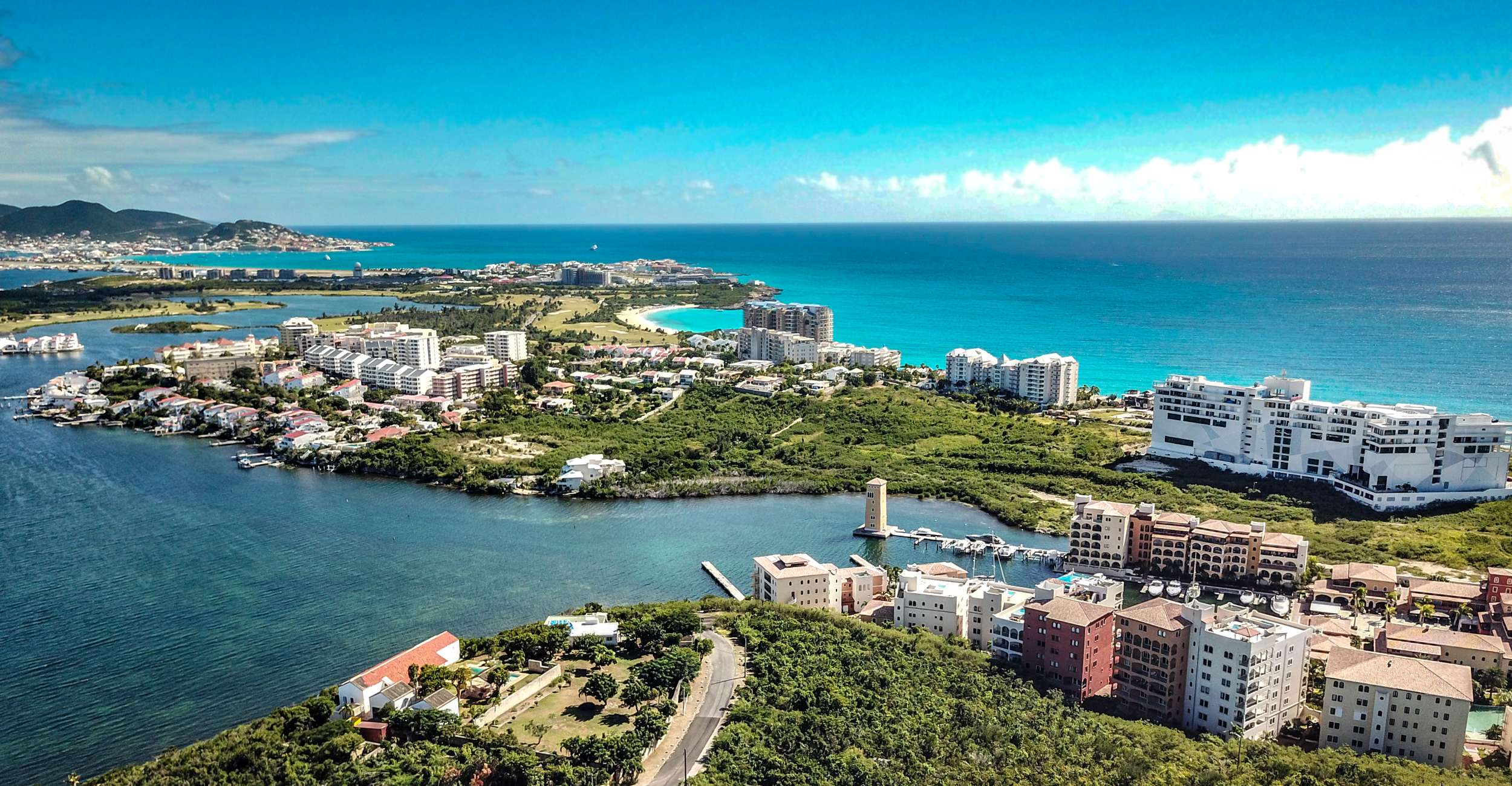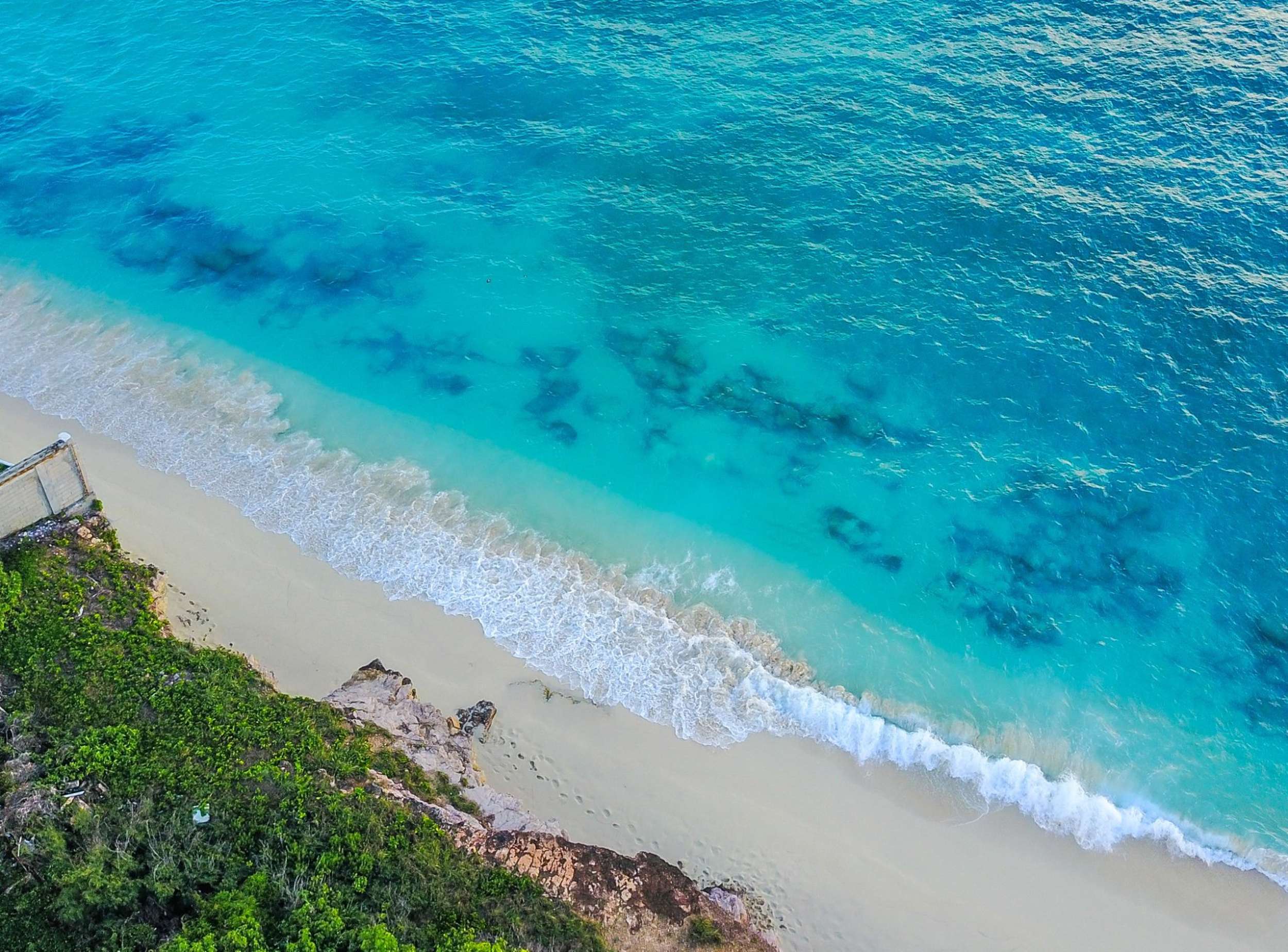Property Acquisistion Laws In Sint Maarten
St Maarten Real Estate Law
Simple yet effective!
With a smaller economy, the volume of real estate transactions; means everything is simpler and less complicated.
Real estate laws in St. Maarten are somehow unique from the rest of the world but not unique in the Caribbean. There are many different aspects of real estate laws in St Maarten that need to be discussed in full and in-depth.
In this article, let us discuss the different real estate laws in St. Maarten and the rules that one should follow when it comes to the acquisition and transfer of real estate property.
Why is St. Maarten Considered As A Pandemic-Proof Island?
One thing that a lot of people have learned in the past year is the fact that being in the center of everything is not always a good thing.
What happened to New York will less likely happen to a place like the Bahamas or St. Maarten. The problems associated with big countries and places like London, Italy, and the United States will less likely happen in a place in the sea. This is what makes St. Maarten a property paradise that is as safe as one could get against the pandemic.
Second-home investors, property investors, and even tourists have made St. Maarten their home away from home. What makes St. Maarten a good real property investment is not just what the islands represent but the real estate laws in St. Maarten that are friendly not just to locals but to foreigners as well.

The Paradise Acquisition
St. Maarten is known for many of the things that it has to offer. Before the pandemic, St. Maarten has been considered a paradise that is primarily used for vacation and some investment. Today, families have revisited St. Maarten and discovered that it is much more than just a place for a vacation.
The good food, the friendly locals, and the real estate laws in St. Maarten are asking every single visitor to stay.
There are many reasons why real estate in St. Maarten is sought after. For those who are already sure that they want to purchase a property in St. Maarten, they can do so with the knowledge that real estate laws in St. Maarten are pretty straightforward when it comes to what they want the population to follow.
Private Property Ownership
Private property ownership in St. Maarten is often called eigendom. It means property ownership in dutch. Any legal entity and the private individual may own real estate property in St. Maarten.
As in any other place, the legal owner of the real estate property in St. Maarten has the absolute right to that property. An absolute right includes the right to freely use and enjoy the property. The absolute right also includes the right to dispose of a particular property that the owner has possession or legal ownership of.
However, the individual who wants to fully enjoy his rights as an owner may only do so by also observing all of the encumbrances and all of the other limitations set forth for the property.
Can I own real estate with others?
Yes, real estate in St. Maarten can be jointly owned. Joint ownership of the real estate in St. Maarten may occur when two or more private individuals or legal entities jointly purchase the real estate property.
In St. Maarten, the joint ownership common regulations or the beheersregeling may be created or put in place to provide for the rules that will govern the individuals.
Where is my real estate ownership recorded?
If you decide to purchase property in St. Maarten, the ownership of the real estate shall refer to and must be recorded in the public register for real estate property. The land registry in St. Maarten is called a Kadaster. It often provides an overview of the liens, mortgages, encumbrances, and all details related to land ownership in St. Maarten.
If you purchase property, the civil law notary who executes the transfer deed will have to register the new ownership in the public register for real estate property. This is primarily done to complete the transfer of ownership of property in St. Maarten. After which, the buyer is now considered as a property owner in St. Maarten.
Long Term Land Lease
For property that does not yet fully refer to one main ownership or that where ownership pertains to the government, there is a long-term land lease that is granted. A long-term land lease refers to the right of an individual to hold and use someone else’s real estate property for a fixed period. Some long-term land leases may be unlimited but this is a practice that is no longer done today.
An individual who owns the property under a long-term land lease is allowed to use the real estate property as if he was the owner of the property. There will only be a couple of limitations in the deed of a long lease.
As part of the government’s way to earn money, the real estate acquisition of individuals in St Maarten Real Estate Law, or of foreigners, through a long-term lease is required to pay a canon or an annual payment.
Is there a difference between a long-term lease and a normal lease?
Yes, there is a difference between a long-term lease in St. Maarten and a normal lease in St. Maarten. Generally, a long lease is constituted to last for a long period. The usual term of a long lease in St. Maarten is in decades.
On the other hand, for a normal lease, the long lease is a proprietary right. The right can be mortgaged as security and is just like any other normal lease.
Who grants the long-term lease in St. Maarten?
Long term lease in St Maarten Real Estate Law is granted by the government for several reasons.
First, when the government intends to regulate the use of land and prevent unlawful land use, they grant a long-term lease. This act from the government in St. Maarten aims to at least encourage those who are building houses to help those who cannot easily afford to buy land.
Another reason is that the government wants to designate persons who can take care of the real estate in St. Maarten and in turn helped the island boom further in economy and tourism.
The government’s income is also reliant on the real estate in St. Maarten. The lack of real estate tax on the Dutch side requires the government to be more crafty in creating laws that would enhance government revenue.
The long-term lease granted by the government increases the value of the land. As land value increases because of improvements placed, there are bigger and better benefits for the general interest.
Can I dispose of my long-term lease and transfer rights to others?
A long-term lease is usually granted by the government. Hence, it is still the government in St. Maarten that is the ultimate owner of the property. However, with a long lease, the lessee can use the real estate in St. Maarten and dispose of it, as if he is the ultimate owner.
There are, however, limitations as to the kind of disposition that the individual lessee can make. Applicable restrictions have been placed by the government on this end and it often depends on the right of the long-term lease agreement.
Can I terminate my long-term land lease?
Yes, you may terminate your long-term land lease. St Maarten Real Estate Law allows the lessee to terminate the long-term land lease. The lessor may also do so if the lessee fails to pay the annual payment for two consecutive years or with another severe breach of contractual obligations. The right to terminate depends on the deed of the lease.
What are the effects if I terminate my long-term land lease?
Real estate laws in St. Maarten require that if the long lease is terminated, for reason attributed to the lessor, the owner of the real estate may pay the lessee compensation for the buildings and improvements.
However, if the termination of the long-term lease is because the lessors failed to pay his annual obligations or have a breach of his contractual obligation, such responsibility may no longer be required of the lessor.
Short Term Land Lease
In the case of a short-term land lease, the land that is usually owned by the government may also be leased out for a short period. Real estate laws in St. Maarten define a short-term lease as that between one and five years. The lease may be granted for recreational or agricultural purposes.
In comparison to a long-term lease, a short-term land lease in St. Maarten is very restricted and the lessor would have more power to easily terminate the lease.

Acquisition of real estate in St. Maarten
The acquisition of real estate in St. Maarten is a strict process. While foreign ownership of land is allowed. The sale and purchase of real estate property in St. Maarten is also a strict legal process that undergoes specific local real estate laws in St. Maarten and the rules on money laundering. St. Maarten is a member of the Caribbean Financial Action Task Force on Money Laundering (CFATF) to protect the islands from the acquisition of questionable individuals tagged under the rules of anti-money laundering and terrorism financing.
Two main documentary requirements are processed in the acquisition of real estate in St. Maarten. The acquisition of real estate requires a purchase contract and a notarial transfer deed. There is a title investigation that should also be conducted before the civil law notary.
Title Investigation
The requirement of a title investigation conducted before the civil law notary has a specific purpose. The purpose of the search is to verify the details of the real estate property in St. Maarten.
Details such as the name of the real estate owner are important. The search verifies the ownership of the real estate in St. Maarten. Who has the power to dispose of the property? Is the property encumbered with a mortgage or attachments? These are important details related to the ownership.
Once all of the other details are settled, the transfer then needs to be registered in the public register for real estate property in St. Maarten. It must be concluded in writing and executed before a civil law notary.
The conditions for the acquisition and transfer of real estate property in St. Maarten are stringent. When the deed of the transfer has not been executed before a civil law notary, the agreement may be voided and nullified by the parties.
Requirement for Natural Persons
In real estate law in St. Maarten, or just about anywhere else, there are two kinds of legal personalities – the natural persons and the juridical persons. Natural persons are individuals. Juridical persons are corporations, entities, organizations that are given existence by the application of the law.
If the buyer of the real estate is a natural person, there are a few requirements. When agreeing, the buyer must be given a copy of the written agreement. He is given a reflection period of three days after the deed or its copy has been handed over to the buyer. The reflection period is given as the right of the buyer to rescind the sale agreement.
If the buyer exercises his right to rescind buying the property, the right of rescission will not arise again if the same parties enter into a new sale agreement for the same real estate property.
Documentary Requirements For The Sale Of Real Estate In St. Maarten
To aid buyers and sellers, the requirements for the sale of real estate in St. Maarten are listed and categorized in this section.
Required Documents
The transfer and purchase of real estate property in St. Maarten require the following documents:
- A sign purchase agreement between the buyer and the seller of the property. This is an important document. Verbal agreements can be revoked at any moment. If you are planning to get a property in St. Maarten, you should make sure that you get a sale and purchase agreement in written form;
- An appraisal report must indicate the description of the immovable property. It must mention the certificate of measurement. There must also be an appraisal of the market value that is not older than six months from the time of the transaction;
- A copy of the title deed must also be included in the documentary requirements; and
- The documents and information from the buyer and seller.
Compliance With Anti-Money Laundering Rules
The Anti-Money Laundering (AML) legislation for St. Maarten may be found in the National Ordinance Combating Money Laundering and the Financing of Terrorism. The rules require that the real estate agent in St. Maarten inquired into the identity of the customer and must know who is the ultimate beneficial owner of the property.
After the real estate agent in St. Maarten has entered into a business relationship, he must continue applying the rules and report any unusual transitions. He must take a risk-based approach to identify the needs and the service that he is required to submit. He must also keep his records for years after the termination of the relationship.
What does the Risk-Based Approach Mean?
A risk-based approach means that the service provider, in this case, the real estate agent in St. Maarten, creates and continues his service relationship with a customer even after the transaction has ended.
The real estate agent should apply the risk-based approach and also conduct a risk assessment that is formalized in a Customer Due Diligence (CDD). Depending on the risk, there are three different kinds of forms – the simplified, the standard, and the enhanced form.
Buying Real Estate As A Foreigner In St. Maarten
Buying real estate property as a foreigner in St. Maarten is not impossible. While many countries do not allow foreign ownership, this is allowed in St. Maarten and possible. Foreign ownership is not impossible in St. Maarten. However, rules and regulations are in place to protect the islands from being used for money laundering and terrorism financing. The process is the same as any other purchase of property on the island.
The foreign buyer would start his property search. Once he has found the perfect property, he would make an offer. On both sides of the island, there are different ways that they can get the property.
There is no need for a lawyer because a civil law notary, who is responsible for performing the title search, would give the all-clear before any other part of the transaction is commenced. The foreign buyer, whether personal or corporate, is then required to pay the notary fee. The notary will prepare the required documents and handle the buying and selling, effectively representing both the buyer and the seller.
The transactions are normally completed within a timeframe of 4 to 6 weeks. The buyer covers all of the transfer charges.
Even foreign buyers have a right to the cooling-off period where they may rescind the contract within three days from receipt of the sale and purchase agreement. Of course, this right also comes with specific limitations.
Paying For Your Real Estate Purchase in St. Maarten
Paying for your real estate purchase in St. Maarten is just as important as all of the legalities that you have to undergo to legally obtain the real estate property in St. Maarten. How do you pay for your real property in St. Maarten? There are two ways: a certified banker’s check payable to the order of the office of the notary and a wire transfer in United States dollars are two of the more important ways that you can pay for your purchase of the real estate in St. Maarten.
A bank account can be opened at the local banks and you may set them up either as a corporate resident or a personal account. The properties are then transferred following the European systems.
Other than your purchase price of the property in St. Maarten, you should also expect to pay a one-time government transfer tax of 4% in addition to the Notary’s fee. The total closing cost of the property and the transfer tax may be between 4% to 6% of the purchase price.
Since you should not expect to have any closing costs on any of the movable items or furniture, you may deduct the value of such items from the gross price. The value determines to be for the understanding of both the buyer and the seller and must be agreed upon beforehand.
What if I want to purchase property to be turned in a leased property?
If the purchase of the property that you have is to be turned into a real estate investment, you are recommended to have it named after an offshore company for more tax breaks. The notaries and trust companies in the Caribbean islands can provide you with the necessary information related to this need.
However, regardless of whether the property you have falls under any of the above categories, you should take note of the zoning requirements of the property.
Zoning requirements are different for residential use and somewhat commercial use. Ask your civil notary to look at the property and include the zoning rules in St Maarten Real Estate Law as part of the search. Tell them the specific purpose of your investment.
Buy Real Estate In St. Maarten Today
If there is one thing that the pandemic has taught all of us, it is the fact that life is short. If you have always dreamt of having property in the Caribbean, St. Maarten real estate is a good place to search.
While searching for the perfect place, keep in mind that real estate in St. Maarten is as advanced as in any other island in the Caribbean. There are condos in St. Maarten, hotels for sale in St. Maarten, and land for sale in St. Maarten that you can choose from. A destination that is as good as a permanent abode, St. Maarten is truly the best place to invest during, and even after, the pandemic.




Comments (0)